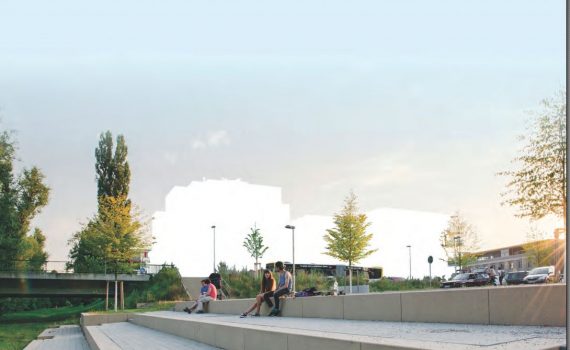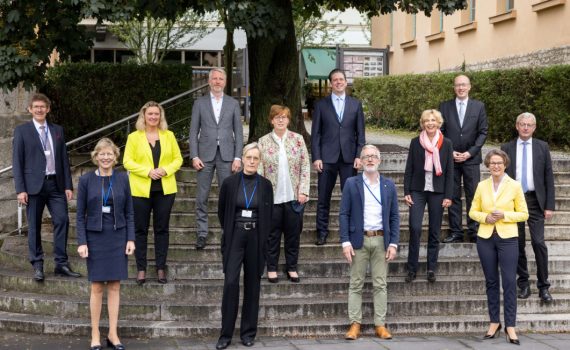Blog posts
 "In key policy areas, it is not enough to take additional steps; instead, a fundamental transformation must be initiated - the Federal Government recognises this with its dialogue version of the German Sustainability Strategy. The momentum for this transformation is now, and it needs tailwind from all ministries," explained Dr. Werner SchnappaufChairman of the German Council for Sustainable Development (RNE). "The version of the dialogue brings important innovations that will allow the policies of the coming years to be more closely aligned with the guiding principle of sustainability. The designation of transformation areas such as the energy and transport transition or the transition to a circular economy is an important step forward. At the same time, we believe that there is still room for improvement in some areas," said Schnappauf.
"In key policy areas, it is not enough to take additional steps; instead, a fundamental transformation must be initiated - the Federal Government recognises this with its dialogue version of the German Sustainability Strategy. The momentum for this transformation is now, and it needs tailwind from all ministries," explained Dr. Werner SchnappaufChairman of the German Council for Sustainable Development (RNE). "The version of the dialogue brings important innovations that will allow the policies of the coming years to be more closely aligned with the guiding principle of sustainability. The designation of transformation areas such as the energy and transport transition or the transition to a circular economy is an important step forward. At the same time, we believe that there is still room for improvement in some areas," said Schnappauf.
Grant of 900 euros per charging point For charging stations at privately used parking spaces of residential buildings For owners and condominium owners' associations, for tenants and landlords The electricity must come 100 percent from renewable energies Applications for funding can be submitted to the Kreditanstalt für Wiederaufbau (KfW) from 24 November 2020. Information: […]
The previous sdg21.WordPress theme was no longer "responsive" for quite a while, which is why not all functions could be used, especially on smartphones. This week I was finally able to solve the problem. So now the sdg21.web database is available again on tablets and smartphones with full functionality. Through the new "Theme" it can [...]
 Wohnungsbaugenossenschaft Neues Berlin and Berliner Stadtwerke have agreed on another joint tenant power project. Six solar power systems with an output of around 500 kilowatts are being built in the Mühlengrund housing estate in Hohenschönhausen. Tenants of more than 1,100 apartments will soon be able to benefit from green electricity from their own roofs.
Wohnungsbaugenossenschaft Neues Berlin and Berliner Stadtwerke have agreed on another joint tenant power project. Six solar power systems with an output of around 500 kilowatts are being built in the Mühlengrund housing estate in Hohenschönhausen. Tenants of more than 1,100 apartments will soon be able to benefit from green electricity from their own roofs.
 From 1 January 2021, climate-damaging fossil fuels will be subject to a price of 25 euros per tonne of CO2 is proven. This means that oil and diesel will become more expensive by 7.9 cents per litre, petrol by 7 cents per litre and natural gas by 0.6 cents per kilowatt hour. Citizens will be relieved of the additional costs, among other things, by a reduction in the price of electricity. The amendment, which had already been passed by the Bundestag on Thursday, also passed the Bundesrat today. The Fuel Emission Trading Act (BEHG) is designed to reduce CO2-price in the form of national certificate trading for the heating and transport sectors.
From 1 January 2021, climate-damaging fossil fuels will be subject to a price of 25 euros per tonne of CO2 is proven. This means that oil and diesel will become more expensive by 7.9 cents per litre, petrol by 7 cents per litre and natural gas by 0.6 cents per kilowatt hour. Citizens will be relieved of the additional costs, among other things, by a reduction in the price of electricity. The amendment, which had already been passed by the Bundestag on Thursday, also passed the Bundesrat today. The Fuel Emission Trading Act (BEHG) is designed to reduce CO2-price in the form of national certificate trading for the heating and transport sectors.
 Glaciers are melting, sea levels are rising, heat waves and heavy rainfall are increasing: The consequences of climate change are visible and tangible worldwide, and the window of opportunity to act is shrinking. In order to significantly limit the global effects of climate change, the emission of greenhouse gases on earth must be drastically reduced. The agreement reached by the international community in Paris in 2015 sets the goal of limiting global warming to well below 2 degrees Celsius, but preferably to 1.5 degrees Celsius. Now, the Wuppertal Institute presented a study with possible cornerstones that can help to achieve the 1.5 degree target by 2035. The study shows that a climate-neutral energy system by 2035 is very ambitious, but in principle feasible, provided that all possible strategies from today's perspective are bundled. This requires, above all, bringing forward and intensifying measures that are described in many studies as necessary to achieve greenhouse gas neutrality by 2050.
Glaciers are melting, sea levels are rising, heat waves and heavy rainfall are increasing: The consequences of climate change are visible and tangible worldwide, and the window of opportunity to act is shrinking. In order to significantly limit the global effects of climate change, the emission of greenhouse gases on earth must be drastically reduced. The agreement reached by the international community in Paris in 2015 sets the goal of limiting global warming to well below 2 degrees Celsius, but preferably to 1.5 degrees Celsius. Now, the Wuppertal Institute presented a study with possible cornerstones that can help to achieve the 1.5 degree target by 2035. The study shows that a climate-neutral energy system by 2035 is very ambitious, but in principle feasible, provided that all possible strategies from today's perspective are bundled. This requires, above all, bringing forward and intensifying measures that are described in many studies as necessary to achieve greenhouse gas neutrality by 2050.
"Solar energy is a fundamental pillar of the energy transition. In order to further support this and to achieve our goal - a complete power supply from renewable energies by 2030 - we are further expanding our successful solar offensive: In addition to expanding the solar storage programme, which is in high demand, we are currently developing a solar register for Rhineland-Palatinate. In addition, we will also promote solar carports, balcony plug-in modules, wall boxes or agro-PV projects in the future," announced Environment and Energy Minister Ulrike Höfken during the event under the motto "Solar Offensive Rhineland-Palatinate: Investments for Climate and Economy" as part of the series "Wednesdays at the MUEEF" in Mainz today. Together with guests from the solar industry, nature conservation and citizen energy, she discussed the opportunities of solar energy for the state, for example through the economic factor of the Solar Offensive or cooperative PV projects.
 The Institute for Urban Planning and Social Research WEEBER+PARTNER (Stuttgart) examined 16 case studies and interviewed responsible persons in municipal, cooperative and private housing companies. The projects are characterized by a wide range of planning and construction approaches. According to the study, social diversity requires structural diversity: Rental, social and owner-occupied apartments of different sizes and with diverse layouts were created in the new housing quarters. They are socially mixed - even within buildings - with the respective proportions in the neighbourhood being derived from local requirements. The new quarters also offer space for communal forms of living, for example for older people and those in need of care. And they are characterised by an attractively designed and green residential environment. Concept awards promote the planning and implementation of such projects: Through them, plots of land are not allocated according to the highest price, but for the best concept.
The Institute for Urban Planning and Social Research WEEBER+PARTNER (Stuttgart) examined 16 case studies and interviewed responsible persons in municipal, cooperative and private housing companies. The projects are characterized by a wide range of planning and construction approaches. According to the study, social diversity requires structural diversity: Rental, social and owner-occupied apartments of different sizes and with diverse layouts were created in the new housing quarters. They are socially mixed - even within buildings - with the respective proportions in the neighbourhood being derived from local requirements. The new quarters also offer space for communal forms of living, for example for older people and those in need of care. And they are characterised by an attractively designed and green residential environment. Concept awards promote the planning and implementation of such projects: Through them, plots of land are not allocated according to the highest price, but for the best concept.
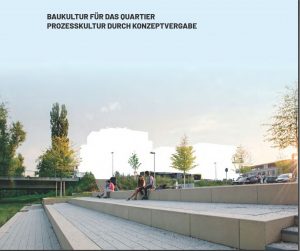 Conceptual procedures are increasingly establishing themselves as a further instrument of municipal land policy for locations with development potential. Here, the property is not allocated according to the highest price, but according to the concept that promises the most sustainable approaches to the further development of the neighbourhood. In this way, the procedures offer municipalities approaches to solving two current and urgent problems: the need for high-quality urban development and affordable housing.
Conceptual procedures are increasingly establishing themselves as a further instrument of municipal land policy for locations with development potential. Here, the property is not allocated according to the highest price, but according to the concept that promises the most sustainable approaches to the further development of the neighbourhood. In this way, the procedures offer municipalities approaches to solving two current and urgent problems: the need for high-quality urban development and affordable housing.
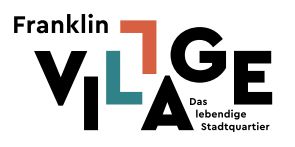 Franklin Village", one of the first large-scale socially and ecologically developed residential projects in Germany, is to be built on the "Franklin" conversion site in Mannheim. The idea is to build a quarter in timber construction that claims to be ecologically and socially sustainable. The project developers will celebrate the groundbreaking ceremony in mid-September with an artistically designed parade of diversity.
Franklin Village", one of the first large-scale socially and ecologically developed residential projects in Germany, is to be built on the "Franklin" conversion site in Mannheim. The idea is to build a quarter in timber construction that claims to be ecologically and socially sustainable. The project developers will celebrate the groundbreaking ceremony in mid-September with an artistically designed parade of diversity.
 Solarserver reports on the world's largest solar heating plant, which has been in operation in China since 2016. It consists of parabolic trough collectors.
On the roof of a XuChen factory building next to the company headquarters are 22,000 m2 collector area, a further 71,000 m2 collector area are implemented as ground-mounted systems. Together they deliver an output of 65 MWth. With concentrating collectors, it would thus be the largest solar heating plant of its kind. An even larger one is the Danish Silkeborg plant (110 MWth)which, however, is equipped with a different collector technology.
For comparison: the largest German solar thermal system that supplies a settlement, neighbourhood or district currently has just 14,800 m²
Solarserver reports on the world's largest solar heating plant, which has been in operation in China since 2016. It consists of parabolic trough collectors.
On the roof of a XuChen factory building next to the company headquarters are 22,000 m2 collector area, a further 71,000 m2 collector area are implemented as ground-mounted systems. Together they deliver an output of 65 MWth. With concentrating collectors, it would thus be the largest solar heating plant of its kind. An even larger one is the Danish Silkeborg plant (110 MWth)which, however, is equipped with a different collector technology.
For comparison: the largest German solar thermal system that supplies a settlement, neighbourhood or district currently has just 14,800 m²
 Hydrogen is an important alternative for sectors stuck in the fossil fuel economy. As national governments and European parliamentarians negotiate the EU's hydrogen strategy, EASAC issues a new commentary. "Hydrogen can help reduce our dependence on fossil fuels," says William Gillett, Director of EASAC's Energy Programme. "But the climate benefits are limited if we use fossil fuels to produce it - even with carbon capture and storage. The EU must put an end to fossil fuel subsidies. The rapidly growing demand for hydrogen must be met by a massive increase in electricity generation from renewables, together with certified imports from third countries."
Hydrogen is an important alternative for sectors stuck in the fossil fuel economy. As national governments and European parliamentarians negotiate the EU's hydrogen strategy, EASAC issues a new commentary. "Hydrogen can help reduce our dependence on fossil fuels," says William Gillett, Director of EASAC's Energy Programme. "But the climate benefits are limited if we use fossil fuels to produce it - even with carbon capture and storage. The EU must put an end to fossil fuel subsidies. The rapidly growing demand for hydrogen must be met by a massive increase in electricity generation from renewables, together with certified imports from third countries."
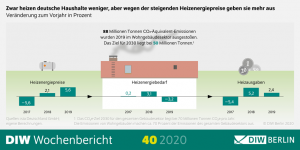 Annual DIW Heat Monitor based on data from energy service provider ista Deutschland GmbH: Heating energy demand in residential buildings declines again for the first time since 2015 - Rising prices, however, cause heating expenditure to increase by 2.4 percent - CO2emissions have fallen by 21 percent overall since 2010, but by only 2.6 percent when adjusted for temperature - Energy-efficient renovation in residential buildings almost stagnant
Annual DIW Heat Monitor based on data from energy service provider ista Deutschland GmbH: Heating energy demand in residential buildings declines again for the first time since 2015 - Rising prices, however, cause heating expenditure to increase by 2.4 percent - CO2emissions have fallen by 21 percent overall since 2010, but by only 2.6 percent when adjusted for temperature - Energy-efficient renovation in residential buildings almost stagnant
UmweltBank has acquired the former GfK site on Nuremberg's Nordwestring. The company is planning an ecologically and socially sustainable urban quarter with housing, a daycare center, commercial space and public green areas. The new headquarters of the green bank will also be part of the quarter. The previous owner, a joint venture of Pegasus Capital Partners and Art-Invest Real Estate, had already developed an urban development concept in recent years and coordinated it with the City of Nuremberg. UmweltBank would like to further develop this concept in line with its own requirements in close cooperation with the city.
 "Solar energy is a fundamental pillar of the energy transition. In order to further support this and to achieve our goal - a complete power supply from renewable energies by 2030 - we are further expanding our successful solar offensive: In addition to expanding the solar storage programme, which is in high demand, we are currently developing a solar register for Rhineland-Palatinate. In addition, we will also promote solar carports, balcony plug-in modules, wall boxes or agro-PV projects in the future," announced Environment and Energy Minister Ulrike Höfken during the event under the motto "Solar Offensive Rhineland-Palatinate: Investments for Climate and Economy" as part of the series "Wednesdays in the MUEEF" in Mainz today.
"Solar energy is a fundamental pillar of the energy transition. In order to further support this and to achieve our goal - a complete power supply from renewable energies by 2030 - we are further expanding our successful solar offensive: In addition to expanding the solar storage programme, which is in high demand, we are currently developing a solar register for Rhineland-Palatinate. In addition, we will also promote solar carports, balcony plug-in modules, wall boxes or agro-PV projects in the future," announced Environment and Energy Minister Ulrike Höfken during the event under the motto "Solar Offensive Rhineland-Palatinate: Investments for Climate and Economy" as part of the series "Wednesdays in the MUEEF" in Mainz today.
Jury statement: "The WIR neighbourhood in Berlin is characterised not only by its high energy efficiency (KfW 40 standard) and the use of wood as a renewable raw material for the building construction, but also by the collaborative planning process, which led to different housing concepts and the integration of different social communities. Communal areas and shared facilities such as a residents' workshop, swimming pool, neighbourhood square and daycare centre enable a lively and diverse neighbourhood. This also includes a dementia residential community as well as organisations for youth work and refugee groups. The five apartment blocks were realised with a timber frame construction and the façade in timber panel construction. This resulted in flexible floor plans that offer good conversion options."
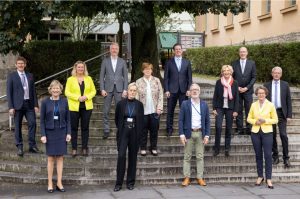 At their meeting in Weimar on 24 and 25 September, the construction ministers of the federal states adopted resolutions on social housing, the use of ecological building materials and the digitalisation of the building permit process, among other things.
The EU's plan to become involved in the area of public housing promotion as part of the new "InvestEU" fund was criticised. The federal government was therefore called upon to advocate a modification of the programme so that subsidies are only granted if the provisions of regional, national or federal funding regimes are observed, in particular if rent and occupancy restrictions are stipulated. The Chairman of the Conference of Building Ministers, Thuringia's Infrastructure Minister Benjamin-Immanuel Hoff, said: "Creating affordable housing in Germany remains an important task. The federal government must continue to provide at least the same level of funding. In order to make faster progress, we need more money in the system. The EU's commitment is therefore to be welcomed in principle. But we must ensure that the funds also reach social housing construction, and we agree that this can best be achieved through the established funding programmes of the federal states."
At their meeting in Weimar on 24 and 25 September, the construction ministers of the federal states adopted resolutions on social housing, the use of ecological building materials and the digitalisation of the building permit process, among other things.
The EU's plan to become involved in the area of public housing promotion as part of the new "InvestEU" fund was criticised. The federal government was therefore called upon to advocate a modification of the programme so that subsidies are only granted if the provisions of regional, national or federal funding regimes are observed, in particular if rent and occupancy restrictions are stipulated. The Chairman of the Conference of Building Ministers, Thuringia's Infrastructure Minister Benjamin-Immanuel Hoff, said: "Creating affordable housing in Germany remains an important task. The federal government must continue to provide at least the same level of funding. In order to make faster progress, we need more money in the system. The EU's commitment is therefore to be welcomed in principle. But we must ensure that the funds also reach social housing construction, and we agree that this can best be achieved through the established funding programmes of the federal states."
Following the interim results of the Housing Summit and the Building Land Commission, demands are being voiced by the scientific community: The still tight housing markets require the use of additional instruments by the federal and state governments. Otherwise, the turnaround towards affordable housing cannot be achieved.
Offensive for green electricity: Installation of 1,000 new photovoltaic systems and 2,000 charging points in Deutsche Wohnen neighbourhoods
"The building sector is responsible for around one third of all CO2-emissions in Germany. To achieve a climate-neutral building stock by 2050, the energy refurbishment of existing buildings alone is not enough," explains Michael Zahn, CEO of Deutsche Wohnen SE. "We also need to exploit the technological possibilities for CO2-Reduction to the fullest and open up the opportunity for our tenants to live sustainably." With the architect Amandus Samsøe Sattler, the German Sustainable Building Council - DGNB e.V. has a new president. In this role, he succeeds Prof. Alexander Rudolphi, who will continue his work on the association's executive committee. The change was announced today during the DGNB Sustainability Day in Stuttgart. The election was held on the eve of the event by the ten members of the DGNB Executive Committee. Samsøe Sattler will initially take over the office until the next DGNB general meeting in the middle of next year.
With the architect Amandus Samsøe Sattler, the German Sustainable Building Council - DGNB e.V. has a new president. In this role, he succeeds Prof. Alexander Rudolphi, who will continue his work on the association's executive committee. The change was announced today during the DGNB Sustainability Day in Stuttgart. The election was held on the eve of the event by the ten members of the DGNB Executive Committee. Samsøe Sattler will initially take over the office until the next DGNB general meeting in the middle of next year.
 A study funded by the Federal Ministry of Agriculture determined the potential of hardwood as a substitute for coniferous wood. The results of the study are now available in a brochure published by the Fachagentur Nachwachsende Rohstoffe e. V. (FNR). There is considerable potential for hardwood to be used in industrial timber, but it cannot yet be a substitute for softwood in construction
A study funded by the Federal Ministry of Agriculture determined the potential of hardwood as a substitute for coniferous wood. The results of the study are now available in a brochure published by the Fachagentur Nachwachsende Rohstoffe e. V. (FNR). There is considerable potential for hardwood to be used in industrial timber, but it cannot yet be a substitute for softwood in construction
The popular ESA dormitory on the campus of the TU Kaiserslautern (TUK) is in great need of renovation. The foundation's renovation concept for TUK envisions the former experimental building becoming a CO2-neutral building. The estimated costs for the work have not yet been fully raised. Therefore, the ESA residents are participating with a crowdfunding campaign, which has been available on the Startnext platform since September 13.
"The world's water resources are currently facing the greatest threat in the history of mankind," write aquatic ecologists in their recently published statement paper. More than one hundred professional societies of aquatic ecosystem research around the globe have signed the joint statement. In it, the researchers show the dramatic effects that climate change is having on aquatic ecosystems worldwide. They call for immediate concerted action by politics, business, science and society to halt the progress of climate change.
 The city is to become cleaner and quieter: Under the heading "blue_village_Franklin", important future topics such as new mobility, energy efficiency, climate-optimised living or smart grids are being tested with the conversion of the former military area FRANKLIN. The SQUARE project, two model houses renovated according to the latest energy standards, and the electromobile bus lines 66 and 67 are part of this master plan. Franz Untersteller MdL, State Minister for the Environment, Climate and Energy Management, visited the two model projects in the new urban quarter on Tuesday, 4 August, as part of his summer tour "Environmental Future".
The city is to become cleaner and quieter: Under the heading "blue_village_Franklin", important future topics such as new mobility, energy efficiency, climate-optimised living or smart grids are being tested with the conversion of the former military area FRANKLIN. The SQUARE project, two model houses renovated according to the latest energy standards, and the electromobile bus lines 66 and 67 are part of this master plan. Franz Untersteller MdL, State Minister for the Environment, Climate and Energy Management, visited the two model projects in the new urban quarter on Tuesday, 4 August, as part of his summer tour "Environmental Future".
Via the new feature you will get a message by email when there are new posts in the sdg21.web database. sdg21 news subscription Sent with the latest content weekly on Tuesday at 9:00 am when there is something new on sdg21.eu. All subscription options can be found at: http://sdg21.eu/sdg21-news-abonnieren
 As stated by EU Commission President Ursula von der Leyen in her State of the Union address announced, the European Commission today (Thursday) proposed that EU greenhouse gas emissions should fall by at least 55 percent by 2030 compared to 1990 levels. The previous target was 40 percent. The new target is based on a comprehensive impact assessment of the social, economic and environmental consequences. This shows that 55 percent less emissions is realistic and feasible. The new climate target will help support Europe's economic recovery from the coronavirus pandemic. It also demonstrates the EU's global leadership in the run-up to the next UN climate conference (COP26).
As stated by EU Commission President Ursula von der Leyen in her State of the Union address announced, the European Commission today (Thursday) proposed that EU greenhouse gas emissions should fall by at least 55 percent by 2030 compared to 1990 levels. The previous target was 40 percent. The new target is based on a comprehensive impact assessment of the social, economic and environmental consequences. This shows that 55 percent less emissions is realistic and feasible. The new climate target will help support Europe's economic recovery from the coronavirus pandemic. It also demonstrates the EU's global leadership in the run-up to the next UN climate conference (COP26).
Short video about the DGNB system for districts in the 2020 version. Which criteria are relevant? Which types of neighbourhoods can be certified according to DGNB?
CO2-Emissions should be reduced by 65 percent over the next ten years compared to 1990 in order to achieve climate neutrality - Energy system must be converted to 100 percent renewable energies by 2040 - Investment of 3,000 billion euros required to meet European Green Deal and Paris climate targets - German EU Council Presidency can ensure that Corona aid packages link economic stimulus with climate protection
Climate protection is important to over 80 percent of Germans - but this should not be reflected in higher rental costs. In order to increase the acceptance of energy-efficient renovations, Deutsche Wohnen has developed a model of how climate protection and social compatibility can come together. The "Concept for Socially Compatible Climate Protection in the Building Sector" aims to significantly increase the rate of refurbishment in existing buildings in order to achieve national climate protection targets. At the same time, an economic stimulus package worth billions is being initiated.
 30.06.2020 - 16 players in the German financial sector, with assets of more than €5.5 trillion and over 46 million customer connections in Germany, have signed a voluntary commitment to align their loan and investment portfolios in line with the goals of the Paris Climate Agreement. Through the agreed measurement, publication and target setting to reduce the emissions associated with the loan and investment portfolios, the financial sector intends to make a contribution to climate protection and support the sustainable and future-oriented further development of the economy. This brings the German financial centre one step closer to the goal set by the German government at the beginning of 2019 of making Germany one of the leading locations for sustainable finance.
30.06.2020 - 16 players in the German financial sector, with assets of more than €5.5 trillion and over 46 million customer connections in Germany, have signed a voluntary commitment to align their loan and investment portfolios in line with the goals of the Paris Climate Agreement. Through the agreed measurement, publication and target setting to reduce the emissions associated with the loan and investment portfolios, the financial sector intends to make a contribution to climate protection and support the sustainable and future-oriented further development of the economy. This brings the German financial centre one step closer to the goal set by the German government at the beginning of 2019 of making Germany one of the leading locations for sustainable finance.
The new version of the Bavarian Building Code will make it easier to build with wood in the future. In future, it can be used in all building classes. Schreyer: "With this, we are making wood significantly more attractive as a building material and thus making construction more sustainable." The Council of Ministers passed the amendment in its session today. Now it is the turn of the state parliament.
 At the proposal of the Federal Environment Ministry, the Federal Cabinet adopted the third German Resource Efficiency Programme (ProgRess III) on 17 June 2020. With this programme, the government aims to achieve an economical use of raw materials. Companies in particular are to use natural resources more efficiently along the entire value chain. Greater use is to be made of digital solutions to increase resource efficiency. The decision in favour of resource-saving products is to be made easier for citizens through improved information.
At the proposal of the Federal Environment Ministry, the Federal Cabinet adopted the third German Resource Efficiency Programme (ProgRess III) on 17 June 2020. With this programme, the government aims to achieve an economical use of raw materials. Companies in particular are to use natural resources more efficiently along the entire value chain. Greater use is to be made of digital solutions to increase resource efficiency. The decision in favour of resource-saving products is to be made easier for citizens through improved information.
18 minute radio report from 23.06.2020 by Josephine Schulz in the media library of Deutschlandfunk: www.deutschlandfunk.de/oeffentliche-auftraege-wie-der-staat-fair-einkaufen-will.724.de.html?dram:article_id=479176 The demand for sustainable products can be increased through municipal procurement. Positive examples but also the problems of sustainable procurement are discussed in the article. Buildings and larger properties are not explicitly mentioned, but the principles basically apply there as well.








